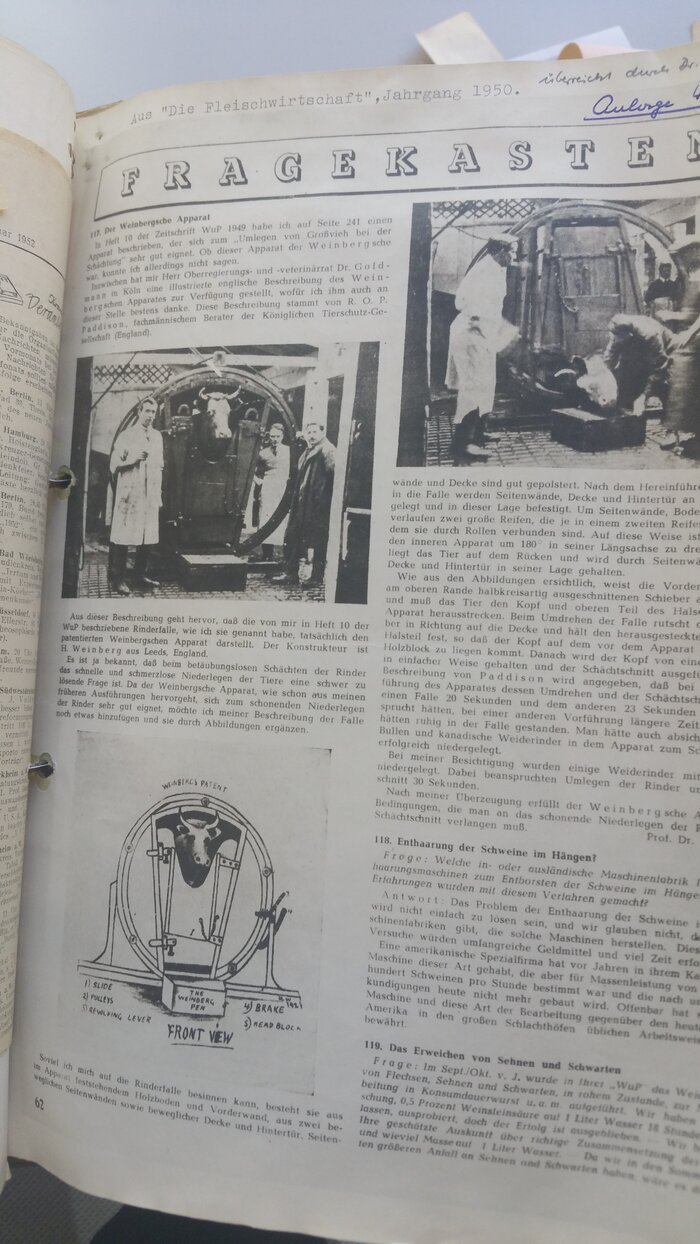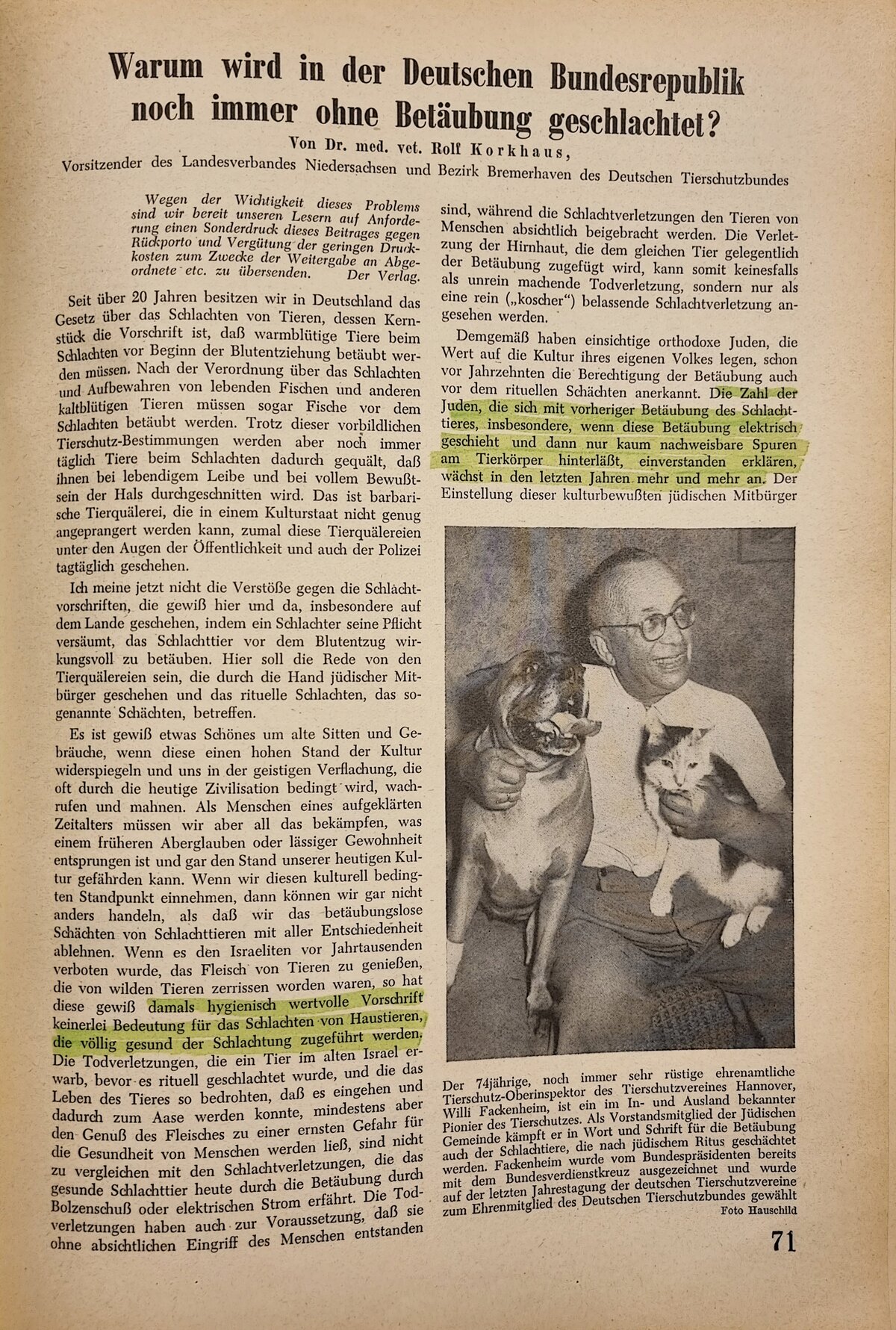In the recent past, the practice of kosher slaughtering carried out by Jews (and halal slaughtering by Muslims) has come under legislative scrutiny in several European countries, where restrictive legal norms are making it increasingly difficult or even completely impossible to carry out ritual animal slaughter without prior stunning. There are currently no concrete plans to revise slaughtering laws in Germany as well, but religious slaughter has become the target of right-wing populism, whose political efforts are also being observed with concern by the Jewish communities. What has been largely forgotten, however, is that political, legal, and social conflicts were fought over the religious slaughter tradition practiced by Jews in West Germany already during the early postwar years, which served as an outlet to marginalize, discredit, and criminalize both Judaism as a religion and Jews as a collective.
Based on these observations, the research project aims at examining the kosher meat supply and consumption of Jews living in postwar Germany, while at the same time making the discussions about kosher meat production the subject of the study. The goal is to reconstruct this history in a monograph on a broad empirical basis and thus to revive it in the collective memory to some extent. The chronology will focus on the period between the end of the war (or the founding of the Federal Republic of Germany in 1949) and the mid-1960s (with an outlook on the passing of the Animal Protection Act in 1972) – thus directing attention to an epoch in the recent West German past in which the dispute over the compulsory stunning of warm-blooded animals was still primarily related to the religious practice of the Jewish community.
At the same time, the research strives for insights that relate to the general constitution of both the Jewish post-war community and the non-Jewish majority society only a few years after the breach of civilization, and insights, respectively, that contribute to interpreting and classifying the complex relationship of Jews to non-Jews since 1945. By examining at the same time the political strategies of Jewish communities and organizations in their confrontation with various actors in the majority society, the project also seeks to level disciplinary barriers between Jewish studies, German-Jewish history, and general contemporary German history. To this end, the study relies on a variety of interwoven perspectives that allow us to look at both Jewish and non-Jewish protagonists and their relationships.





![[Translate to English:] [Translate to English:]](/fileadmin/_processed_/9/b/csm_Living_the_German_Revolution_553d3e92d2.jpg)